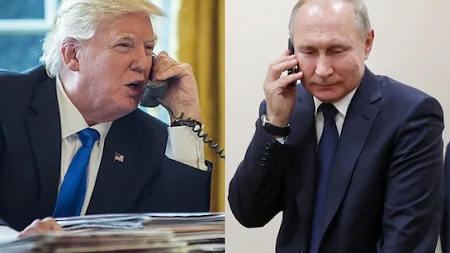In a major diplomatic development, Russian President Vladimir Putin has expressed readiness to end the war in Ukraine following a lengthy phone conversation with U.S. President Donald Trump. The two leaders reportedly spoke for over two hours, with both sides describing the exchange as constructive and forward-looking.
According to Russian state media, President Putin conveyed Moscow’s willingness to work with Kyiv on drafting a formal ceasefire memorandum. This announcement marks one of the strongest signals yet of Russia’s openness to ending the conflict, which has stretched on for years with devastating humanitarian consequences.
Trump, who played a central role in the discussion, described the tone of the call as “excellent,” while Putin called it “informative” and “frank.” The conversation appears to be part of a growing international push to bring an end to the war through diplomacy.
Momentum for renewed peace talks is reportedly building across the West. Italian Prime Minister Giorgia Meloni confirmed on Monday that Pope Leo XIV has offered the Vatican as a neutral venue for negotiations between Russia and Ukraine, a gesture that has received support from key European and American leaders.
Following the Putin-Trump call, a number of European heads of state, including Ukrainian President Volodymyr Zelenskyy, French President Emmanuel Macron, and German Chancellor Friedrich Merz, held individual discussions with Trump to assess the potential for peace talks.
In a related development, the U.S. Vice President met privately with Pope Leo XIV and Archbishop Paul Richard Gallagher, the Vatican’s top diplomat. While details of the conversation with the Pope remain undisclosed, the White House released a statement highlighting shared concerns over religious freedom and the persecution of Christians in conflict zones.
“The Vice President and Archbishop Gallagher discussed religious freedom, the persecution of Christians around the world, and the shared commitment of President Trump and Pope Leo XIV to stop the killing in Ukraine and the Middle East,” the statement read.
While cautious optimism surrounds the prospect of peace, officials warn that a lasting resolution will require robust diplomatic coordination, mutual concessions, and genuine political will from both Moscow and Kyiv.



